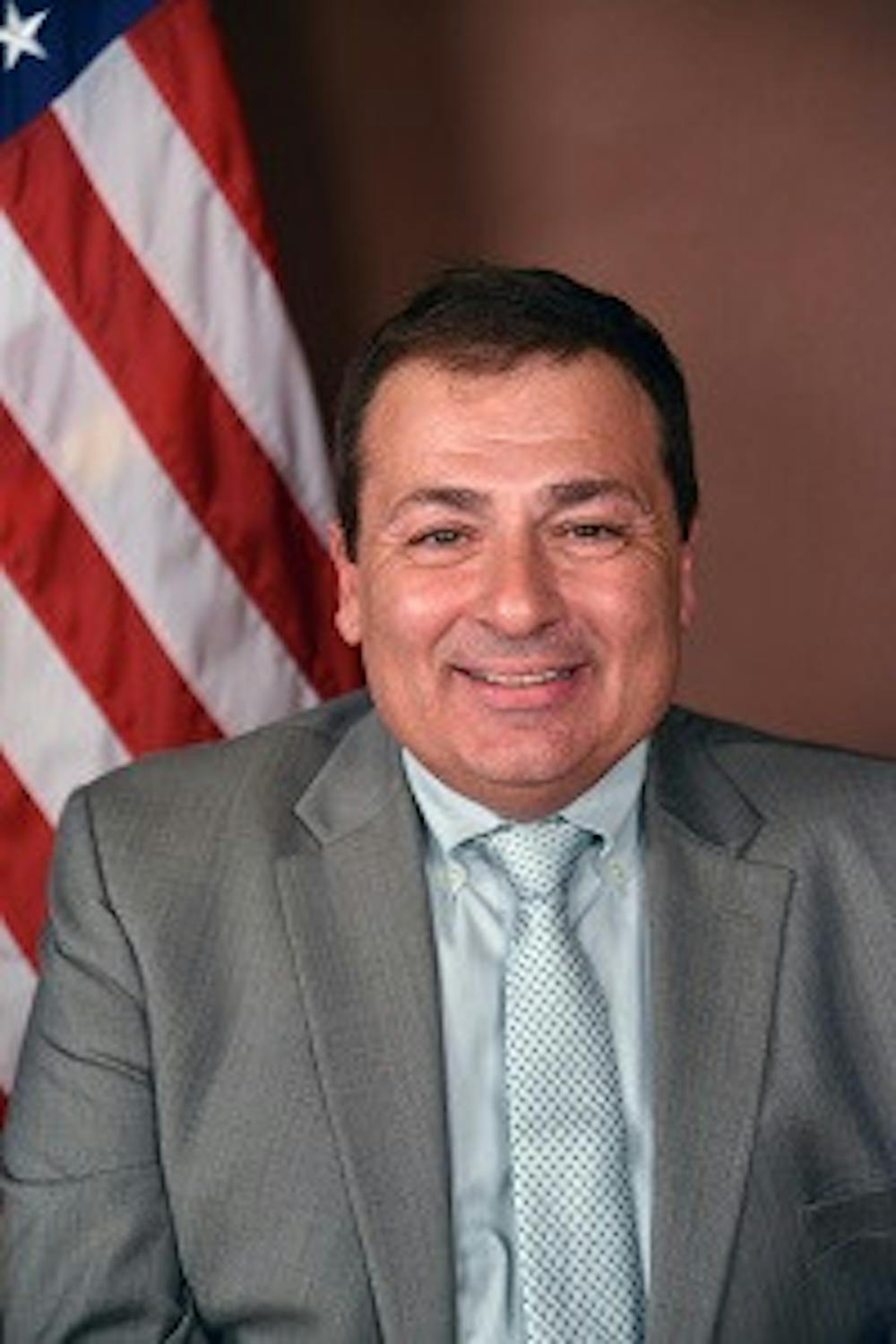Representative K. Joseph Shekarchi, who recently became Speaker of the Rhode Island House after long-standing Speaker Nicholas Mattiello was defeated by Republican challenger Barbara Ann Fenton-Fung, hopes to prioritize more collaboration among House members and technologically adapt to the challenges posed by the COVID-19 pandemic.
Shekarchi also plans to restructure House committees and work on existing legislation that was unable to go forward, in part due to the pandemic.
While some — representatives and students alike — are hopeful about the functioning of House processes and legislative initiatives with Speaker Shekarchi at the head, others argue that it is too early to say anything definite.
Both Representative Blake Filippi, Republican minority leader of the House, and Edith Ajello, Democratic representative for District 1, said “the proof will be in the pudding,” in regards to Shekarchi’s prospective performance in his new leadership role. “The mere elevation to Speaker doesn’t write the story. What you do in that position and how history judges what we do at this time will answer that question,” Filippi said.
Nevertheless, Speaker Shekarchi has outlined several goals that he hopes to accomplish in his new position, one of which is a legislature that prioritizes collaboration and mutually respected viewpoints, he told The Herald.
“We have an extremely diverse group of 74 individuals who come … with very diverging opinions on where we want to go with the state budget, where we want to go as a state, what kind of programs we want to fund and which type of programs we want to cut. So, I want to be collaborative,” Shekarchi said.
Filippi echoed that sentiment. “Instead of just having someone at the top that drives policy down to the members, we think that Speaker Shekarchi is going to make this the bottom-up institution that it needs to be to most effectively function and be an effective law-making body.”
This starkly contrasts former Speaker Mattiello’s approach to legislation according to Filippi, who described Mattiello’s leadership as “imperial” in nature.
“The committee process is something that is talked about a lot, but in the last couple years of Nick Mattiello’s reign as Speaker, the committee process didn’t mean much,” Ajello said. Bills were passed without much deliberation and representatives would leave their respective committees mere minutes after attendance was taken, according to Ajello. She heard from her colleagues that part of the reason for these behaviors was due to the fact they knew their viewpoints were unlikely to be heard.
“I have hope that (Shekarchi) will run the general assembly … in a way that respects the committee process and the abilities and interests of other members of the House, like myself, more than his predecessor,” Ajello added.
Beyond certain values Shekarchi hopes to instill as Speaker, he also plans to restructure and modernize House committees.
“We need to embrace new technology,” Shekarchi said, such as allowing for remote hearings in the State House and proxy voting for Representatives.
Due to the COVID-19 pandemic, several House sessions have been canceled. And, due to a specification in the Rhode Island Constitution, the House must convene in the city of Providence, according to Shekarchi. This requirement has posed a unique challenge in the midst of a global pandemic.
Beyond necessary modernization, Shekarchi would like to see House committees, which have gone unchanged for at least 20 years, restructured. Specifically, he hopes to create a committee focused on technology and prioritize housing and healthcare issues in Rhode Island.
According to GoLocalProv, Shekarchi’s law practice was recently cited for its connection to multiple eviction hearings throughout the Ocean State in the last five years.
In response to the GoLocalProv reporting, Shekarchi said there have been no evictions by the firm he represents due to failure to pay rent during the pandemic. In addition, Shekarchi said that his legal compensation is not tied to the number of evictions and therefore he does not have an “incentive to evict people.”
In terms of the Speaker’s legislative priorities, “the biggest issue every year … is the state budget,” Shekarchi said. The day after being elected Speaker, Shekarchi worked on a $12.8 billion bridge budget for 2021. “It was a good budget in the times we were in,” he said. “We’re going to roll up our sleeves and get together with a more long-range budget.”
In addition to the budget, Shekarchi aims to follow through on legislation from the previous year, which includes continued focus on economic development.
While Shekarchi’s time as Speaker has only just begun, Morgan Awner ’21, Vice President of Brown Democrats, already sees a source of disappointment in one particular legislative area: banning guns in schools.
According to Awner, the legislative policy that Speaker Shekarchi has put forth does not affect the issue of armed school resource officers. It “seems like he is trying to appease (gun violence prevention groups) without actually doing anything,” she said.
“There is still a lot left to be desired, but I just hope that the session goes differently in terms of transparency and bills getting on the agenda,” Awner said.

ADVERTISEMENT




